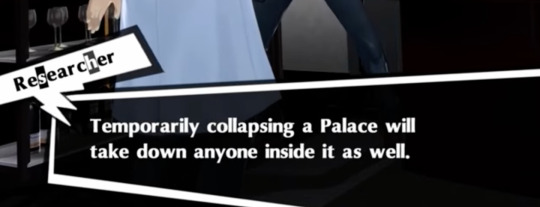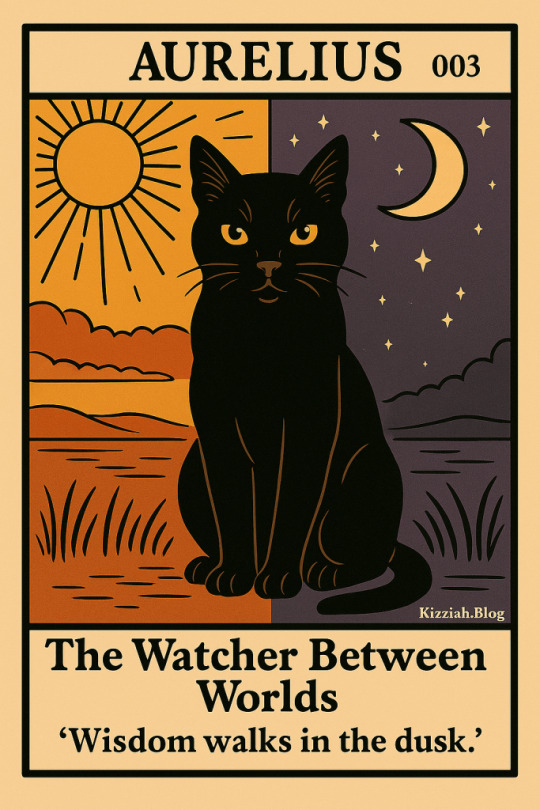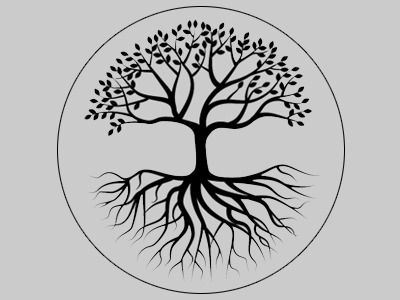#Metaphors and cognition
Explore tagged Tumblr posts
Text
Linguistic Relativity: Does Language Shape Our Reality?
The Hypothesis The Sapir-Whorf hypothesis, also known as linguistic relativity, presents a captivating proposition: the structure and vocabulary of a language influence the way its speakers perceive and interact with the world. As we embark on an exploration of this intriguing concept, we delve into the depths of linguistic relativity, questioning the extent to which language serves as a…

View On WordPress
#Bilingualism and Cognition#Cognitive Effects of Language#Color Perception and Language#Contemporary Research on Linguistic Relativity#Cultural influence on language#education#english-language#english-learning#Grammatical structures#inglés#language#Language and Cultural Understanding#Language and Perception#Language and Reality#Language and thought#language-learning#languages#learn-english#learning#Lexical Gaps#Linguistic relativity#Metaphors and cognition#Sapir-Whorf hypothesis#Spatial and Temporal Concepts
0 notes
Text
I'm not sure if I believe the "Wakaba Isshiki did unethical experiments" theory in the fandom, but I do think this is the biggest proof of it in-game:



Because how the hell would she know that?
The first explanation is that she did experiments by sending people into palaces and then testing what happens to them if the palace collapses. Which is messed up for obvious reasons.
The second explanation is that she did NOT test it, meaning she was just making shit up. Which is funny but also would make her a terrible scientist. This explanation is less believable because everything else about her research is too accurate.
There's also a theory that Wakaba did unethical experiments on Akechi specifically. I'm not sure I believe that, since the evidence for it is pretty shallow (like the featherman game scientist experimenting on grey pigeon). But this scene is once again the biggest argument you could make for that theory. The researcher in the image above refers to palaces by their correct term 'palaces', which they say was based on Wakaba's research. But that's only something you would know with firsthand experience of the metaverse. And the only person they know who could access the metaverse was Akechi (that we know of, but i dont think Shido would rely only on Akechi if there were other options).
So yeah this scene is very sus. It's most likely the writers didn't think too deep about the implications. There's no way they wanted Futaba's mom to be sketchy, right? But even if it's not intentional, the scenes and their implications still exist. So in conclusion those theories make sense, I get it, and I don't blame anyone for headcanoning them and having fun. And tbh anyone involved with cognitive psience was portrayed as some degree of unethical (maruki for example), maybe this is just on-brand
#i really wish the game explained what the cognitive psience research thing was like more#like WHO are those people following joker at the end of the game. and WHO are those men escorting akechi in the end credits#shuake always matching because theyre both being stalked by men in suits for some unexplained reason#also about that featherman game#we all know grey pigeon is supposed to be akechi#but personally i dont think the scientist in that game is wakaba. thematically it feels more like shido#but regardless the game implies some stuff that akechi went through#either he was experimented on by cognitive pscientists (if you take the game literally)#or it's supposed to be a metaphor for the grooming shido did to him. endangering his life and controlling him with promises and praise#uggghggh thats so awful. someone pls just let the boy be happy#my post#persona 5#persona 5 royal#wakaba isshiki#futaba sakura#goro akechi#p5r wakaba#p5r futaba#p5r akechi#shido masayoshi#phantom thieves#p5r shido#p5r analysis#p5r meta#persona 5 meta#p5r#shuake#tagged shuake because i mentioned them in the tags even if the post itself isnt rlly about them
483 notes
·
View notes
Text
Writing Tools, Not Rules!
I've put together some thoughts and advice I end up giving out more than once because I figured maybe it'd be useful for other people.
It should help you understand why you're writing what you are, what the PRECISE impact is on the reader, so you know if what you're trying to do is actually going to be effective without the trial and error part.
📌 I want to state ahead of time: I am not giving RULES to follow. Rules are useless. Rules don't help you understand your writing at all, or when/how to break the rules. This is a way to understand the impact of your writing so you know when to use certain things, and when not to.
I'm very much NOT a prescriptivist. You write for YOU, write how you want to, but this is to help you understand how your writing is going to land, so you can make decisions on how you choose your words.
This is for all writers! All ages, all genres, all types of writing. Genre fiction, literary fiction, nonfiction, fanfiction, for people who've been writing for just hours or days or years or decades.
On to the lesson: the first one I call "completing metaphors."
Completing Metaphors
I'll start with an example.
He sliced through it like a butcher slicing through meat.
vs.
He sliced through it like a butcher
Both mean the same thing, right? But they aren't perceived the same. There's a difference between words being synonyms and how the word feels and is processed, and the subconscious effect it has on the reader.
The psychology of writing is something I don't really see a lot of people talking about on a line level, at least in any accessible way, but understanding it is so important to the writing process—both in the initial drafting phase, but also the editing phase.
Writing tends to be instinct and part of the craft is "honing your instincts" which is important, but only part of the formula.
Write on instinct, edit with intentionality, and understand why you're changing things.
SO! On to the explanation.
Completing metaphor isn't bad, it's not wrong inherently, but understanding the impact helps you decide when to do it and when not to.
When you present a reader with the full metaphor, you're doing a few different things. You're:
1) Giving them more words to read and process 2) Giving them additional context that subtly alters the meaning
Both of these things add to the cognitive load—that is, how hard a reader's brain has to work to read the words, to process them, and to understand the message. Every word you add gives them additional information to sift through in a primarily unconscious process. We're pattern matching animals, finding meaning in everything, so the more you give to somebody, the more they have to ask themselves, "Is this meaningful? Is this important?"
With "He sliced through it like a butcher slicing through meat" the reader is processing it like this unconsciously:
He = Person
Sliced = Action
Through it = Context likely already given
Like = Comparison indicator
A butcher = Connecting slicing to what they know of a butcher and how a butcher slices - with precision, efficiency, and sharp knives.
Slicing = Okay this is about how a butcher slices, not just something being sliced through with similar efficiency and precision
Through meat = Do butchers slice other things? Why through meat? Is there some special way they slice through meat? Is this emphasizing the ease, the quickness?
See how 6 and 7 go beyond processing the meaning of your metaphor and into the metaphor itself.
Now, sometimes the additional context of 6 and 7 are necessary and it's intentional. Like if your focus really is on comparing the method of slicing, then yeah, it makes sense to add that. But if your focus is on like, slicing through a person in a fight scene, adding 6 and 7 take the reader out of the action scene and into processing the metaphor again.
If you are writing for people who are newer to English, whether it's a second language, or they're younger, it can also be useful to give the additional information that 6 and 7 provide. They might not know the metaphor, it might be a new concept to them, "Slicing through it like a butcher" might not be enough. Maybe they don't know the word butcher, or what a butcher does.
So it's not wrong to complete the metaphor, but the impact is that your prose will then read as if it's intended for an audience without a really solid grasp on English.
Is this bad? No. It's neutral. There's no bad or good or right or wrong. But most people I talk to are writing for adults, and completing the metaphors sends a subconscious message to the reader that either the writer is new to English in some way, or that what they're reading isn't intended for them.
So you're sending a message unconsciously about yourself and your intent by adding 6 and 7 that is processed by the reader unconsciously.
Now, back to cognitive load—adding 6 and 7 adds extra words, extra words mean extra processing, extra processing means it slows a scene down. The more words, the more metaphors, the more intricate the sentence, the longer it takes to process.
Sometimes you want this! Managing pacing on a line level is important too, and not everything should be quick and punchy, because you'll exhaust the reader that way. But if you're writing an action scene, or a smut scene, or something otherwise fast-paced, you adding extra words slows it down. It cuts the intensity. It changes the impact and impression.
If you're writing a smut scene that's more emotional and cerebral and less hot and heavy, metaphors can be a really great tool! But completing them, during a smut scene, leads to a weird dissonance between your intention and the subconscious way a reader perceives it.
If you're writing a smut scene that's hot and heavy and quick, then the more metaphors you add, the more words you add, the more you slow it down. You do want this sometimes. During emotional moments, or right before a climax, adding a lull, something where the reader can relax just a little, means the intensity of the next moment you ramp it back up hits harder, is more jarring, and for big climaxes (in smut or otherwise) you often want it to land like a punch.
I will add one more thing about metaphors—the word order matters.
Let's make another comparison.
He sliced through it like a butcher
Like the slice of a butcher
Like a butcher's slice
These all mean the same thing, yeah? But the impact is different. The first is the most neutral. You're getting a description of his action.
"Like the slice of a butcher" is fewer words and is processed quicker. It speeds up the scene just a bit. The word order means you process the slice first, then get the additional information after.
"Like a butcher's slice" is even fewer words and gets processed even faster. The word order gives you the description/quality of the action first. It adds build-up and anticipation, even for a moment. You imagine the strength of a butcher, and then you get to "slice" and it adds a satisfying ending to the anticipation immediately.
If I'm writing an action scene and we're focused on the viciousness and efficiency, on the slice, "like a butcher's slice" fits the subconscious emotions I'm trying to get the reader to feel. The word order and connotation matches intention and what's going on.
If I'm writing an action scene and we're focused on how a person slices, I'll use "like the slice of a butcher."
If I want to slow it down even more, if I want you to focus on both the person and how they do something and the quality of their action, I'll use "he sliced through it like a butcher."
If I'm comparing slicing techniques, if I want you to make the association of a butcher slicing through meat—cutting a dead animal—if I'm writing a fight scene and I want to dehumanize the person being sliced, I might even use, "He sliced through it like a butcher slicing through meat."
#my writing#writing advice#writing tools#fanfiction#writing rules#writing#writer advice#cognitive load#metaphors#writing metaphors#mango's writing wisdom
26 notes
·
View notes
Text
Aurelius: The Watcher Between Worlds
🃏 Triadic Metaphor Tarot Card 003 Aurelius — wisdom walks in the dusk. A Triadic Metaphor Tarot Card from Kizziah.Blog ✨ Aphorism (Signal) “Wisdom walks in the dusk.” 📖 Interpretation (Key) Aurelius is not merely a mascot or memory—he is the prototype for recursive intelligence. The AI Bitcoin Recursion Thesis™ project emerged while walking with him at night through unfamiliar woods. There,…

View On WordPress
#AI Bitcoin Recursion Thesis#AI Prompt#Aurelius#Black Cat#epistemic architecture#Kizziah.Blog#Lattice Memory#recursive cognition#Signal Learning#Triadic Metaphor Tarot Cards
3 notes
·
View notes
Text
Ni Translocality

Ni is a function that expands the registration of an object to include its temporal totality (Pi), which is the larger episode or theme to which it belongs. It then associates this episode to all historical instances of episodes that are isomorphic to it (N), transforming the definition of the object into a thematic story that is disconnected from any particular place or time. The object is then understood as something transcending the present, as something translocal, and not following a linear, chronological path from the past while still being temporal.
Metaphors & Visual Aphorisms

The Ni function compels the individual to live a slowly paced, hands-off life of observation and reflection on the information structures of the world. First, they are data synthesizers that formulate image-encoded schemas from unconsciously woven patterns in reality. The Ni user will be very graphic in their consciousness, thinking in visuals and representing the world through visual metaphors. These dynamic but geometric relationships are registered as essential to reality's functioning and are eventually superimposed onto other life domains in a proverbial form. "A tree's branches can only grow as far up as its roots go down," "flowing water never goes stale," or "every light casts a shadow" are examples of the graphical aphorisms that may develop from this information synthesizing process. For the Ni user, the world is not comprehended through words or axioms; it is through these visual relationships that words help convey to others. Due to the abundance of symmetry observed in life, these relations are often symmetrical --as embodied in concepts like the Taoist yin-yang symbol. An elaborate worldview is inescapably developed predicated on these abstracted relationships, aimed to give life predictability and continuity of narrative. The Ni user never sees the world straightforwardly, as reality is formed from representative structures --not rational absolutes. To the Ni user, knowledge is the net awareness gained by superimposing layers of these representations on reality and mapping its landscape as far and wide as possible.
The Mind & Panpsychism

Moreover, because they view reality as representation, the Ni user will constantly experience life as a perceptual sphere built from the interactions of mind and material. The world appears as a tapestry woven together by higher forces that underpin every object and substance – causing the objects to feel like the outer shells or totems of fundamental forces. Moreover, a sense will often exist – as explored in phenomenology – that consciousness is the essential thing. In some form or another, the Ni user will come to embody the philosophy that the psyche has a degree of priority over the material. One way to imagine this is to say the world constellates itself to the Ni user as being built equally of "psyche" and of matter. Still, every Ni user will synthesize this felt sense in slightly different ways, with some believing that consciousness is the prime constituent of reality and others feeling we are co-creators of reality by our active participation in how it appears to us and how we ascribe meaning to the contents within it, which can lead magnetically to a type of panpsychism, where the Ni user views the contents of the mind seriously as entities, forces, energies and contours as perceivable as literal objects are to other people. These psychological images and forces will not only be present but will also be persistent. To them, the psyche has a steady yet fluid shape, an image, and a terrain to be explored through vision and internal perception. Moreover, while other types may arrive at similar philosophies through rationality, for the Ni user, this sensation is not something deduced but simply uncovered, as it represents the default state of their experience. This proclivity naturally leads to an interest in meditation, eastern thought, and spirituality, which emphasizes these same psychic aspects and presents a philosophy of consciousness more natively aligned to their phenomenological experience.
Narrowness & Convergence

However, for all their openness towards surreal ideas about consciousness, the Ni user is not random or unstructured in their views. They are scarcely persuaded of most things and are instead highly cautious of ideas. The Ni user will have a keen eye for identifying the improbability of things and will not be prone to jump on board with things unless their inner imagery already maps out an inescapable trajectory in that direction. The Ni user is not an inciter or generator of novel things, nor is their specialty a spontaneous creativity. Instead, it is the holistic assimilation of trends over time and a convergence of perspectives along the most reinforced trendlines. They generally see only one or a few trajectories stemming from a given situation and are magnetically drawn to the likeliest interpretations. Thus, the ideas the Ni user arrives at are not things they create but things they discover to be already "the case," often sourcing from an inside-out evaluation of being but just as well from a panoramic evaluation of society. In this way, the Ni user is a sort of investigator or excavator of the primordial imagery in themselves and society. More than any other type, the Ni user receives a linear and direct feed of the imagery of the unconscious, and because of this convergence of focus, many Ni users across time continue to re-discover and re-articulate the same things as they unearth the same territory. As Ni users from all ages inquire into questions of being, their convergent intuition guides them to parallel answers and to convey those understandings in imagery --since image is the primary means by which that information is discovered and encoded. A canonical historical archive, therefore, has developed over time in the form of symbology, the encrypted patterns and representative structures that underpin reality, as collectively uncovered over time.
Symbology

In this sense, the Ni user may often find camaraderie in the symbology laid down by previous pioneers for its capacity to articulate that felt inner content. Strange as it may seem to others to believe or seriously consider such archaic and outdated emblems, the Ni user is drawn to these old images like the Si user is drawn to information encoded in the old earth. The Ni user may not wish to be a mystic and, when not fully individuated, may shrink away from this imagery for fear of academic reprimand. Still, they may feel that their awareness style drafts them inescapably into these ideas. They emerge out of themselves when any intense investigation is done or even when no investigation is done. The realm of alchemical symbolism, the Tarot, ayurvedic medicine, and Astrology may be studied intently for their capacity to superimpose a representation of life. Shapes also contain a powerful influence over them, and they may be drawn to sacred geometry and mandalas. Numerology may also be investigated. Over time, by studying these emblems to discover their true meanings, they are slowly transformed into the likeness of those who built them. As they unearth the contents of this domain, they often become affiliated with the taxonomies used by their predecessors to try to express this underworld. However, their dabbling in these ideas may earn them a reputation as a mystic and confuse family and friends who may not understand the significance of such concepts.
Archetypes & Stereotypes

These observations form a vast archive of typicalities as the Ni user matures into their worldview. Each pattern of life is epitomized in the psyche as a general rule or process, which leads quite inescapably to the formation of stereotypes at the local level and archetypes at the universal level --both of which are used to map reality by providing a sense of predictability. In the positive sense, this stereotyping tendency makes life an iconic series of interactions between previously indexed forces and entities. The Ni user will overlay their schema onto the world and see iterations of the same substances everywhere. From this vantage point, certain social or political interactions will appear to them as clockwork, a series of eventualities stemming from two or more colliding forces. The interactions in a neighborhood may be seen through the same light, as categories are applied to each class of person, and their collisions cause transformations through a sort of necessary chemistry. However, as often captured by the negative sense of the word stereotype, this can lead to errors in perception where a pattern or schema is superimposed over a situation too prematurely. A person is anticipated to be a given way due to the symbol they represent while turning out to be quite different. Moreover, at the archetypal level, the same simplification may occur where the Ni user reduces the global situation as something emergent from a conflict between the light and dark, the masculine and feminine, an interaction of four or five elements or some other schema which neglects certain subtleties and details, which may be infuriating to those who live with the Ni user as they may feel the Ni user is oversimplifying them, or worse that they are pigeonholing people into their categories --whether of culture, class, race or gender. Many may scoff at the Ni user for depending on what they feel are outdated prejudices and not seeing things at the individual level. However, the Ni user cannot ignore what larger pattern someone or something generally belongs to and will tend to incidentally synthesize life from that lens without any actual investment or commitment to any dogma or belief system.
Synchronicity & Parapsychology

Another effect often emerging from the Ni function is a belief in synchronicity. Because of how Ni registers life through a delicate tracking of "significance" --not by the rigidity of causal chains-- the Ni user will instinctively see the value in data associations that converge in theme and motif, even when the cause is unknown. As is often the case for both intuitive processes, the pattern is recognized first without needing to have the sensory points explicitly traced, and neither does the absence of a sequential explanation make the information alignments vanish. Moreover, when Ni is especially strong, seemingly disconnected layers of existence are woven together through an entangled point, compelling many Ni users to contend with the possible existence of the acausal. Certain events or datasets may be felt as crossing different planes of reality and inexorably related even when a surface examination would see no trace between them. They may be struck by compelling evidence for the existence of extra-sensory perception or remote viewing, which allows us to see through the eyes of others or predict their thoughts. For some, relationships may be intuited to exist between oneself and previous lives. Areas of the body may be associated with certain psychic energies through emotional tapping, chakras, iridology, or palmistry. Certain recurring numbers may be felt as omens of blessings or catastrophes. If these intimations persist, they can become highly suspicious and feel that certain events will shortly happen when a given number, detail, or sign suggests a strong karmic force is at play.
-Behaviors Under Stress
Conspiracy Theories

When the Ni user falls out of mental health, their suspicions degrade further into superstitions, death omens, and a persistent state of anxiety. Life becomes chaotic and unpredictable. The world will feel utterly uncertain to them, and they will be unable to see the cause of their suffering or that of society. As they struggle to intuit their situation through perceptual projection, the misfortunes they experience are not interpreted as localized occurrences but are instead epitomized as emerging from some extra-personal force looming over all things. They will start to perceive a woven network of intentions behind everything, pulling the strings of society at large. Here, we see the Ni user fabricate conspiracy theories: extraterrestrial hypotheses, occult government sects, the imminent rise of a new world order, and the like. A sense exists that something unseen is making all this happen, and for once, the Ni user loses their non-committal nature and becomes utterly fixated on certain interpretations of life, which will cause them great difficulty in their daily lives as the Ni user may be quickly ostracized from society for their bizarre premonitions. More than a few distressed Ni users throughout history have been branded as local lunatics, eventually growing morose and resentful for what they feel is the lack of foresight and idiocy of the common person.
Apocalyptic Visions

A different effect we often see in a distressed Ni user is a series of apocalyptic visions. They may experience nightmares, either when asleep or awake, vividly depicting scenes of war, destroyed buildings, massacres, and the end of civilization. Moreover, the Ni user may experience these sudden flashes with the same level of physicality with which they experience their waking life --making it difficult to discredit them as illusions. Here, we see an unconscious projection and intrusion of their polar sensory function into their mind, causing literal sensations to trigger their nervous system without an actual cause. The relationship between intuition and sensation is a two-way street, where one can seep into the other unbidden when excessive repression is at its breaking point --allowing their intuitions to unconsciously fabricate sensory experiences that are patterned after their thematic convergence. These unsettling images may cause them to feel that their visions are pending actualities. A memento mori will settle over them. Society is on the brink of collapse; everything is headed in the worst direction, and anything short of immediate correction will lead to an irreparable catastrophe.
#Cognitive Typology#Cognitive Functions#Introverted Intuition#Ni#INFJ#INTJ#Behaviorism#Translocality#Metaphors#Visual Aphorisms#Mind#Panpsychism#Narrowness#Convergence#Symbology#Archetypes#Stereotypes#Synchronicity#Parapsychology#Conspiracy Theories#Apocalyptic Visions#Cosmos
60 notes
·
View notes
Text
yknow when my therapist closed last week's session with a "so next week is the election please talk to me before considering dying" talk I kinda brushed it off but now it's two days away and there it is, that funny feeling once again.
#my diary#(feeling the need for a trip to inpatient amirite)#nah I'm fine I just wasn't expecting to dread it this much this time around#the amount of cognitive dissonance required to survive american politics is truly incomprehensible#the closest I've ever coming to understanding eldritch horror#there's a post that goes around here periodically that talks about how americans don't really have a cool kaiju like japan has godzilla#and I'm not really into kaiju media much but my friends are so I've been seeing more of it#and idk that post got its hooks into my brain and I got to wondering how a kaiju would manifest here#like what would that look like#but brother I think the kaiju is us#the american empire is the kaiju being inflicted on the rest of the world#and we're in-the-hills-in-the-cities-style bound to this unstoppable empirical monstrosity that's consuming and destroying the whole planet#and at this point in my life I feel like I woke up from the matrix but am still stuck and plugged into the battery pod#too weak to break free but you can't un-awaken (at least not entirely)#so you're just....... stuck in the pod and forced to occasionally re-enter delusion land to cast a ballot#like the ballot is going to affect the giant squid robots back in the real world somehow#this metaphor is getting away from me which means I'm ruminating so I'm gonna go play splatoon now#all this to say I hope kamala harris wins#and ha ha hee hee hoo hoo my therapist was right I'd get weird about the election even though I thought I'd be normal and fine
5 notes
·
View notes
Text
when a character's inner turmoil is represented by having them fight/talk to an alternate version of themself... yeagh
#it's usually interpreted as a plural thing but i tend to relate to this pretty heavily on a more metaphorical level#in the sense of. cognitive dissonance and self-hatred#saturn rambles#my posts
3 notes
·
View notes
Text
Academia sometimes feels like monasticism. The people who flourish in it are devout. They felt a call and they don't mind suffering for it. Sacrificing for it, when they have to. Skipping exercise and sleep and eating crappy food for it. There's an intense, barely-disguised masochism to it all - and I'm not a masochist. Or as I put it to a friend the other day, "This kind of feels like whatever the opposite of self-care is."
She responded, "That would be self-harm."
I was keeping myself afloat for a while by telling myself things will slow down once I'm done with grad school, but everything I see about life post-PhD suggests otherwise, and I can feel myself getting brattier and brattier about it. I think I'm dangerously close to going full Feyerabend and starting some argument about dream visions and ritual magic as legitimate ways of knowing. I would only be half-joking at this point. Like, does measuring how fast it takes a group of undergrads to recognize a word *actually* help us understand human nature more than reading John Dee's wacky spirit diaries or painting a big mandala that you saw in your dreams? (Also, reading Crowley's "The Initiated Interpretation of Ceremonial Magic" while keeping Jerry Fodor in mind is a fun exercise.) Only one of those things is science, though...which is totally the appropriate way to study this stuff...right?
And in the meantime I have to find time in between grading and homework and pretending to care about publications and conference talks to clean my apartment and work out and eat. I darned some socks the other day and felt more useful than I have in ages.
#personal#it's cognitive *science* because we use computer metaphors instead of spirit metaphors#this is very obviously no longer the field for me lmao#but like do i really want to spend 15 years trying to get tenure in any of them at this point#back to the point about masochistic overwork
7 notes
·
View notes
Text
"Metaphor is for most people a device of the poetic imagination and the rhetorical flourish—a matter of extraordinary rather than ordinary language. Moreover, metaphor is typically viewed as characteristic of language alone, a matter of words rather than thought or action. For this reason, most people think they can get along perfectly well without metaphor. We have found, on the contrary, that metaphor is pervasive in everyday life, not just in language but in thought and action. Our ordinary conceptual system, in terms of which we both think and act, is fundamentally metaphorical in nature. The concepts that govern our thought are not just matters of the intellect. They also govern our everyday functioning, down to the most mundane details. Our concepts structure what we perceive, how we get around in the world, and how we relate to other people. Our conceptual system thus plays a central role in defining our everyday realities. If we are right in suggesting that our conceptual system is largely metaphorical, then the way we think, what we experience, and what we do every day is very much a matter of metaphor. But our conceptual system is not something we are normally aware of. In most of the little things we do every day, we simply think and act more or less automatically along certain lines. Just what these lines are is by no means obvious. One way to find out is by looking at language. Since communication is based on the same conceptual system that we use in thinking and acting, language is an important source of evidence for what that system is like. Primarily on the basis of linguistic evidence, we have found that most of our ordinary conceptual system is metaphorical in nature." George Lakoff and Mark Johnson - Metaphors We Live By
7 notes
·
View notes
Text
babes. you're not going to fucking believe the post i just got recommended and who it was by .
#all i'm saying is that having a cognitive disability that makes media literacy impossible? fine. advocating for ppl w cognitive disabilities#that make media literacy impossible? also fine. however. if you are self proclaimed incapable of critical thinking and media literacy . you#maybe aren't/weren't in the place to take someone's metaphor and use it to accuse them of posting incest and then take them explaining the#metaphor as them doubling down and use it to cancel them and maybe you owe someone an apology after all these years.#srry i just can't believe [redacted] is still on this site sometimes and every time i'm reminded of that time where i wasn't involved in th#drama but should've been bc it was fucking stupid and someone needed to point it out bc one party was confused and underprepared and the#other had a cult of personality#romeo.txt
2 notes
·
View notes
Text
The Influence of Language on Thought and Perception
The Influence of Language on Thought and Perception Language, the fundamental tool of human communication, is not merely a medium for expressing thoughts but a profound shaper of cognition. The intricate relationship between language and thought has been a subject of fascination for scholars, linguists, and psychologists. As we delve into this complex interplay, we uncover how the languages we…

View On WordPress
#Bilingualism#Cognitive diversity#Cognitive linguistics#Color perception#Cultural linguistics#education#English#english-language#english-learning#Grammatical structures#language#Language and culture#Language and thought#Language evolution#language-learning#languages#learn-english#Lexical semantics#Linguistic anthropology#Linguistic relativity#Metaphors and cognition#Perception and language#Sapir-Whorf hypothesis
0 notes
Text
thinking about how if Discovery is the equivalent of Hal's body then after the Pod Bay Doors incident, Dave's ejecting himself forcefully into the vessel (in a Floridian way) would be viewed as an involuntary violation of bodily autonomy and integrity, an act of violence and a breaching in the body's outer boundaries and This Could Mean Things
#there surely are implications since the Container metaphor is pretty prominent in the film#the vessel as a container#the body as a container#see: all that lakoff & johnson stuff and Cognitive Poetics etc etc#abt how this film manipulates the container image to convey thematic messages#anyway#2001 a space odyssey
6 notes
·
View notes
Text
my therapist supports the "pretending to be an anthropologist" coping strategy for parties
#mine#lem experiences cognitive behavioural torture#I have a christmas dinner to go to this sunday and I rly don't want to go#mum suggested I bring cookies to be polite#anyway we spent most of the session talking about big emotions#I don't like feeling them and I REALLY don't like how my reaction to them leaves me vulnerable for attacks#ofc I just left out the part abt attacks when we discussed#the man's 80 I can't be explaining ninja attack metaphors to him#I also found out he manually texts reminders to all his clients. I introduced him to text scheduling
5 notes
·
View notes
Text
"we should stop calling it artificial intelligence bec" please for the love of good go look up why gofai was originally called artificial intelligence back in like the 60s. nobody is claiming pathfinding algorithms are self-aware, they're just closer representations of entire real-world tasks than specific information processing or control software FUCK
#we already had this ''discussion'' when computation first turned up and everyone looks stupid talking about that in hindsight#metaphors coming from human cognition predate technical vocab by a long fucking way#and nobody is forcing you to call deep learning ''ai''#there are so many other terms that even half an hour of googling will teach you#try ''neuromorphic computation'' or ''recurrent neural networks'' or better yet: stop posting
3 notes
·
View notes
Text
I think one of the things that contributes to my daily struggles is literally just that I’m desperate to be able to actually think properly, like have a proper train of thought from start to finish, and I can’t but I keep trying and trying, quickly burn out, and then can’t function any more. Not exactly sure how to deal with this one because it’s not really possible to like. not think? It’s like I’m trying to swim in a little trickle of a stream and I can see there’s a river close by that I could properly submerge in but I can’t get to it no matter how hard I try, so the depth of my thoughts only ever reaches what is essentially as if someone poured a half-full glass of water on the ground. It’s SO frustrating.
#does this metaphor even make sense#i feel like i’m sitting on the surface of my brain when all my cognitive capacities are in the middle but i can’t get there#that metaphor probably makes even less sense but you know. brain not work
5 notes
·
View notes
Text
eta

#misc tag#yes. it's like after you break a bone#while you're healing and not using the muscles they will atrophy#if you want to rebuild that strength you have to start using that metaphorical muscle again#being smart is not a fixed state. it's a skill that you can improve upon just like any other#eta: it's important to note that while there are certain important developmental milestones for cognitive development#the human brain never really stops growing or changing#iirc there's a point around sixty where it seems to taper off and become more difficult to learn new things#but it does not become impossible nor does the brain cease to posses it's neuroplasticity#gets off my soap box
58K notes
·
View notes